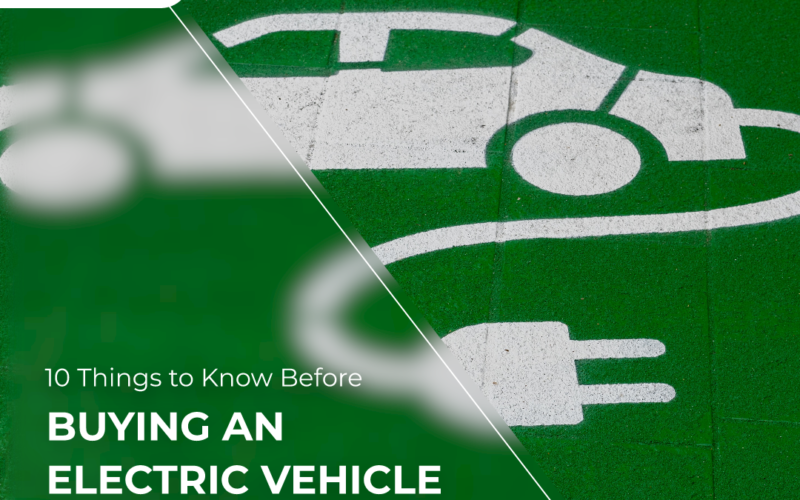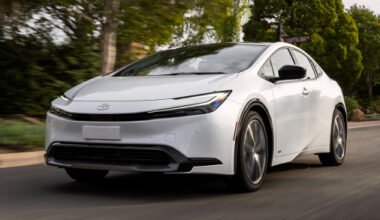Electric vehicles (EVs) are becoming increasingly popular as eco-friendly and cost-effective alternatives to traditional gasoline-powered cars. However, before making the decision to buy an EV, it’s essential to be well-informed about their unique features, benefits, and considerations. This document outlines ten important factors to consider before purchasing an electric vehicle.
- Range and Charging Infrastructure: Understanding the range of an EV is crucial. Consider your daily commuting needs and choose a vehicle with sufficient range to meet them comfortably. Additionally, research the availability and accessibility of charging stations in your area to ensure convenient charging options for longer trips.
- Charging Time: Unlike traditional refueling, charging an EV takes time. Know the different charging options available, such as Level 1 (standard household outlet), Level 2 (dedicated charging station), and DC fast charging. Each option provides varying charging speeds, so assess your needs and ensure the charging infrastructure meets your requirements.
- Battery Life and Warranty: Evaluate the battery life and warranty provided by the EV manufacturer. Lithium-ion batteries degrade over time, affecting the vehicle’s range. Consider warranties that cover battery performance for an extended period, ensuring peace of mind and potential savings in the long run.
- Total Cost of Ownership: While EVs may have a higher upfront cost compared to conventional vehicles, they offer lower operational and maintenance costs. Evaluate the potential savings from reduced fuel expenses, tax incentives, lower maintenance requirements, and the overall cost of electricity compared to gasoline.
- Incentives and Rebates: Research and understand the available incentives and rebates for purchasing an EV. Governments often provide subsidies, tax credits, or rebates to promote electric vehicle adoption. These incentives can significantly reduce the overall cost of the vehicle, making EVs more affordable.
- Charging at Home: Consider the feasibility of installing a home charging station. This allows you to conveniently charge your EV overnight and wake up to a fully charged vehicle. Evaluate the installation costs, electrical requirements, and potential benefits of home charging based on your usage patterns.
- Vehicle Types and Models: Explore the variety of electric vehicle options on the market. Different EVs cater to various needs, including sedans, SUVs, hatchbacks, and even electric trucks. Research the available models, their features, performance, and range to choose the vehicle that best suits your lifestyle and requirements.
- Service and Maintenance: EVs generally require less maintenance than traditional vehicles due to the absence of internal combustion engines and fewer moving parts. However, familiarize yourself with service centers, authorized technicians, and any specialized maintenance requirements to ensure proper care and support for your EV.
- Resale Value: While the electric vehicle market is growing rapidly, resale value can still be a consideration. Research the resale value of EV models, as well as the potential impact of advancements in battery technology and new models entering the market. Understanding these factors can help you make an informed decision.
- Environmental Impact: One of the key motivations for choosing an EV is its positive impact on the environment. Electric vehicles produce zero tailpipe emissions, reducing greenhouse gas emissions and improving air quality. Consider the broader environmental benefits and align your decision with the goal of reducing your carbon footprint.
Purchasing an electric vehicle is an exciting decision that requires careful consideration. By understanding these ten key aspects, including range, charging infrastructure, battery life, costs, incentives, and maintenance, you can make an informed choice that aligns with your needs, lifestyle, and environmental goals. Embrace the transition to electric mobility and contribute to a cleaner and sustainable future.






